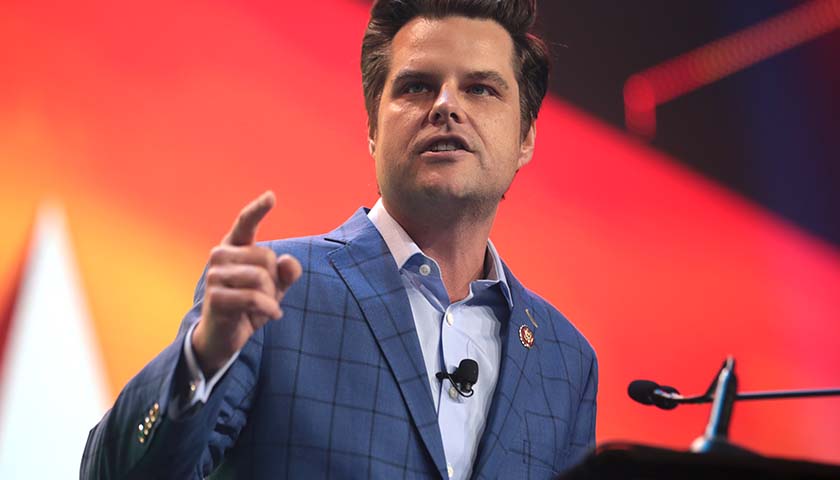by Grace Melton
A who’s who of transgender activists was scheduled this week to meet in Geneva at the World Health Organization to develop new guidelines on “the health of trans and gender-diverse people.”
We can presume the meeting took place, even though public notice of it didn’t appear on the U.N. website listing meetings and conferences.
Until recently, the international classification system of diseases treated gender confusion as a mental or behavioral disorder. But in 2019, the new edition of the International Statistical Classification of Diseases and Related Health Problems (ICD-11) replaced “transsexualism” with the concept of “gender incongruence.”
It moved its discussion to a chapter on sexual health. The purpose of that change was clear; specifically, to destigmatize transgender identities.
According to the WHO, gender “refers to the characteristics of women, men, girls and boys that are socially constructed.” The United Nations, of which WHO is a prominent agency, claims that “gender identity” refers to a person’s “deeply felt internal and individual experience of gender.” That may involve “modification of bodily appearance or function by medical, surgical or other means.”
It still concedes that sex is a real thing, but that concession does nothing to slow its headlong rush to embrace gender ideology.
Clearly, the WHO is trying to create a document to endorse “gender-affirming care.” Then it can push such official guidelines on health systems throughout the world.
How can we tell this is an ideological campaign?
We need look no further than the biographies of the guidance development group, which reveal a rogues’ gallery of gender ideologues. The Heritage Foundation noted that in a comment it submitted to the WHO earlier this year. (The Daily Signal is the news outlet of The Heritage Foundation.)
Take, for example, Chris McLachlan, a South African woman who identifies as a man and serves on the board of the World Professional Association for Transgender Health (a group that pushes gender quackery). Another member, Cianán Russell, is a policy officer with ILGA Europe and claims to be “nonbinary.”
The group drafting the new guidelines lacks any doctors who are critical of the “gender affirming” model of treating patients with gender dysphoria. Nor does it include any detransitioners, who regret their use of cross-sex hormones and invasive surgical procedures.
This push to develop gender medicine guidelines seems to violate the WHO’s own standards for developing guidance. The U.N. considers access to evidence-based medical care as part of the right to health. Its rules require, then, that any group issuing guidelines be unbiased, and that its recommendations be grounded in solid evidence.
It’s no surprise, then, that many physicians have criticized this WHO plan. And while gender ideology has corrupted much of the U.N. human rights apparatus, the special rapporteur on violence against women and girls has been an outlier.
Reem Alsalem still believes that women and girls deserve protection, privacy, and single-sex spaces. She penned an open letter to Dr. Tedros Adhanom Ghebreyesus, director-general of the WHO, objecting to the group’s biased makeup and its disregard for women’s rights.
To judge from its stated agenda, the group is poised to call for all U.N. member states to recognize individuals’ “self-determined gender identity” in domestic laws, policies, and health care systems.
But that’s not a health or medical issue. It’s a political goal rooted in gender ideology.
Gender ideologues claim that when someone’s “gender identity” and biological sex conflict, governments should recognize the former, not the latter. That requires that men who identify as women be legally recognized as women, and vice versa. It erases the legal mechanisms that have preserved women-only spaces, such as restrooms, domestic-abuse shelters, and prisons.
This is already happening in Western countries, where such policies permit men to compete in female sports and require that women undress in changing rooms with men who identify as women. These policies are the direct result of replacing “sex”—or what used to be its synonym, “gender”—with self-defined “gender identity” in nondiscrimination laws.
This ideology is unscientific and incoherent. But whatever its merits, such political and metaphysical questions are clearly outside the competence and mandate of the World Health Organization.
The group is also considering classifying cross-sex hormones as “essential medications” that countries must make widely available. This classification is applied to medicines used for pain relief, surgery, treating mental health conditions, and palliative care. The off-label use of cross-sex hormones is a far cry from medications such as morphine, acetaminophen, or lorazepam.
This isn’t the first time that the World Health Organization has misused this designation. During the COVID-19 pandemic, the Global Humanitarian Response Plan treated “sexual and reproductive health services” as “essential.” It added mifepristone and misoprostol, used for chemical abortions, to the essential medications list so women could “self-manage some or all stages of a medical abortion … in the comfort of their own home.”
A WHO claim that cross-sex hormones are “essential” would be a medical disaster. It would help spread the use of puberty blockers and cross-sex hormones like a contagion across the world.
But we know that this is not good medicine. There are many known health risks associated with “gender affirmation” interventions—and likely countless unknown risks. For example, cross-sex hormones cause sterilization when used for an extended period. Other risks include bone loss, loss of brain function, worsened mental health, increased cardiac risks, and increased risk of cancer.
Several European countries are starting to question these interventions for their own minors.
Why would the WHO push them now? Under the cover of its work on combating HIV, Western gender activists and wealthy donors appear to be trying to funnel these drugs and medical interventions to the developing world.
Despite its medical pretense, this looks more like a coordinated campaign to promote gender ideology around the world.
Wealthy donor countries should not use the WHO to bully other countries into adopting these radical interventions. Many countries around the world struggle with real, dire health emergencies, such as tuberculosis, malaria, HIV, and malnutrition. They look to the World Health Organization for sound medical guidance and critical aid dollars.
Imposing experimental gender medicine on the very places that depend on financial and medical aid is public health blackmail.
The WHO should disband this cabal of activists. The world’s poor need unbiased and evidence-based health advice, not the gender fixations of a narrow band of elites in the developed world.
– – –
Grace Melton is The Heritage Foundation’s senior associate for international social issues. She is part of the think tank’s DeVos Center for Life, Religion, and Family.




